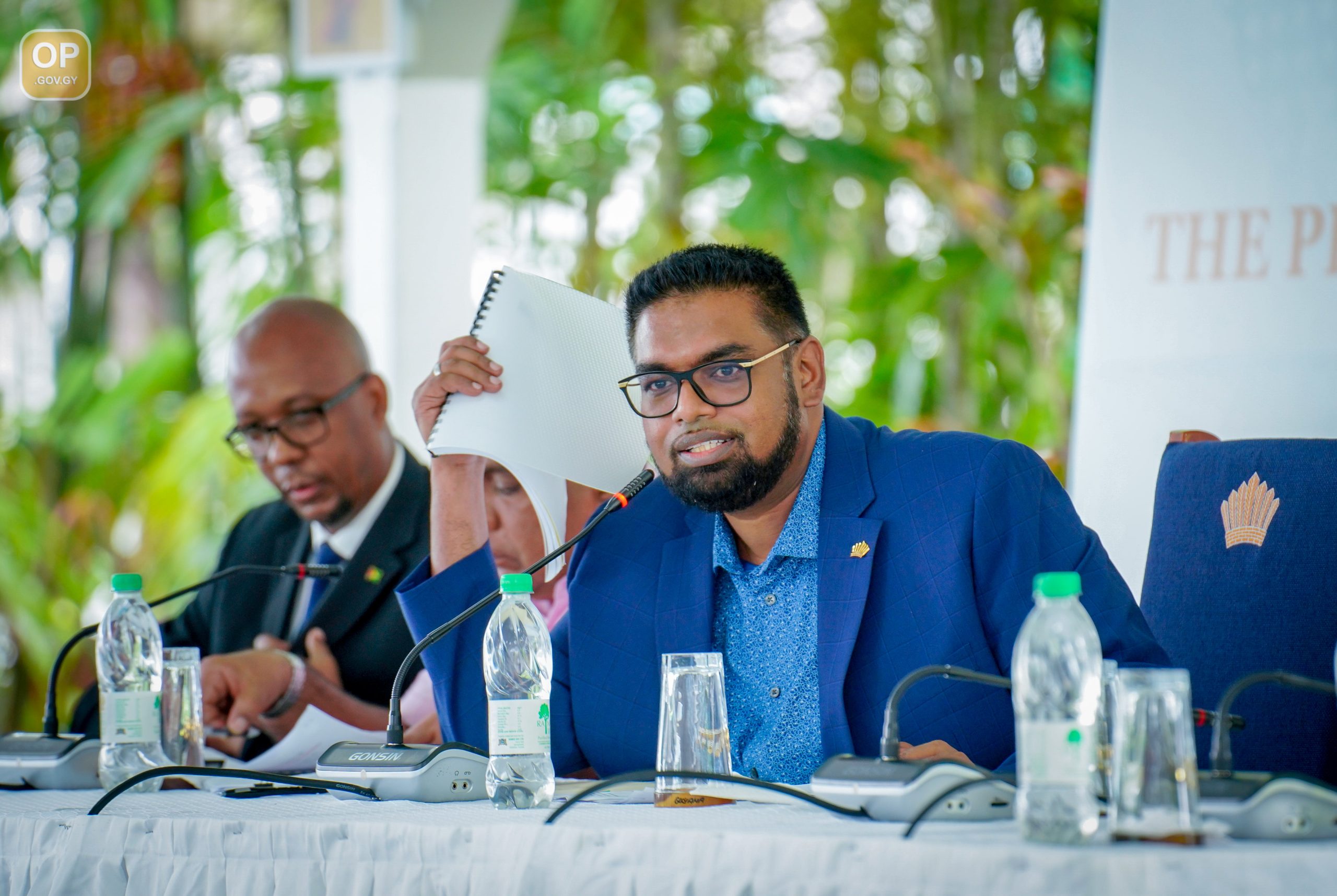
By Vishani Ragobeer
Heads of Government of the Caribbean Community (CARICOM) will discuss acceptable local content provisions, particularly for new industries, but President Dr. Irfaan Ali is certain that these discussions pose no threat to Guyana’s historic Local Content law.
“In no way, shape or form, was anyone critical of Guyana’s local content legislation,” President Ali said while responding to questions at a press conference on Sunday.
Last week, President Ali joined other CARICOM Heads in Belize for a leaders’ summit. There, Prime Minister of Barbados Mia Mottley said that the CARICOM Heads agreed to establish a new committee to examine local content provisions in countries.
This intended examination was prompted by concerns raised by the Caribbean Private Sector Organisation (CPSO) that Guyana’s law may violate the free trade provisions of CARICOM’s Revised Treaty of Chaguaramas.
Guyana’s new law strikes a delicate balance between foreign companies’ operations and investing in and using local goods and services. And it was prompted by the new oil and gas industry.
But Dr. Ali told reporters that this new committee, which Guyana will be part of, is not intended to revise the Local Content law.
“The committee…was established to look at it in a wider context,” he said.
With this new law generating much discussion, Prime Minister Mottley had clarified that the “issue” which will be discussed by the Heads of Government is what percentage of local content would be acceptable, and for how long those local content provisions should be valid.
She supported local content provisions but noted that countries could phase out those provisions that provide locals with an advantage after they benefited over several years.
President Ali, however, noted that as locals become more skilled in the new industry and as the country expands its capacity to provide the goods and services required, those local content provisions may increase – not decrease.
And he drew attention to Trinidad and Tobago, which has had a local content policy instituted for several decades.
“So, I don’t see any threat.
“As a matter of fact, what you will see is more collaboration in the region because you are seeing more partnerships,” the Head of State elaborated.
Concerns about Guyana’s Local Content law were first raised by the Head of the CPSO, Gervase Warner. In a leaked email, Warner questioned whether this new law may violate the revised Treaty of Chaguaramas.
For context, the Revised Treaty of Chaguaramas led to the creation of the Caribbean Single Market and Economy (CSME). The CSME is an ambitious initiative that is expected to facilitate economic integration and the movement of goods, services and capital throughout the CARICOM without tariffs or other restrictions.
But, fully implementing the CSME has been hindered by the policies and laws of some CARICOM Member States, especially Trinidad and Tobago.
Despite widespread criticism from Guyana’s private sector, the CPSO later said that it was intent on engaging CARICOM and Guyana’s government on the recently enacted Local Content law.












No FOREIGNER can own land in Trinidad and Tobago and rent or lease to Oil and Gas Industry. Meanwhile Trinidadians ARE allowed to to that in Guyana…they also want everything else but are willing to hire a few Guyanese.